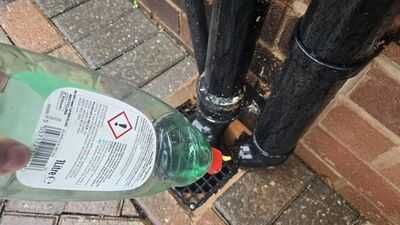Wells Fargo is paying up. The bank has agreed to a $19.5 million settlement after being accused of recording customer calls without consent in California. The issue? Violating the California Invasion of Privacy Act (CIPA) — a law that requires every person on a call to agree before recording. Between October 22, 2014, and November 17, 2023, Wells Fargo and its affiliate, The Credit Wholesale Company Inc., allegedly recorded thousands of phone calls with California residents and businesses. No warnings. No disclaimers. Just silent recordings that broke the state’s strict privacy law.
Each affected call could mean money. The $5,000 Wells Fargo settlement offers around $86 per recorded call. But if multiple calls were recorded, payouts could reach up to $5,000 per person. Both individuals and small businesses are eligible. The court will decide the final payment amounts once all claims are verified. This isn’t just about money — it’s a message to corporations that California takes privacy seriously.
Who’s eligible? Anyone who lived or did business in California during that period and got a sales, service, or appointment call from Wells Fargo or its partners without being told it was recorded. Proof helps — phone numbers, business names, or call details connected to the recordings. This isn’t a random giveaway; it’s compensation for violating your privacy rights.
Filing is easy. Go to https://www.CallRecordingClassAction.com. Click “Submit a Claim” and fill in your details. You can also mail your claim to the Settlement Administrator, P.O. Box 301132, Los Angeles, CA 90030-1132. Need help? Email admin@CallRecordingClassAction.com or call 888-733-1544. Claims require your name, phone number, address, and confirmation that the call was recorded without consent.
Once the court finalizes approval, payments will begin. The settlement ensures Wells Fargo and its affiliates comply with privacy laws moving forward. It’s about accountability, transparency, and protecting consumers from hidden recordings. The $5,000 Wells Fargo settlement is more than a check — it’s proof that even big banks can be held responsible for invading privacy. If you think you’re eligible, act fast. This is your chance to claim what’s yours.
Who qualifies for the Wells Fargo settlement
You qualify if you lived or did business in California between 2014 and 2023, received a call from Wells Fargo, The Credit Wholesale Company, or an affiliate, and were not informed that it was being recorded. Both individuals and businesses can apply. Proof may include phone numbers or business details linked to the recorded calls.
How to claim your $5,000 Wells Fargo payment
Claims can be submitted online at CallRecordingClassAction.com. Select “Submit a Claim” and fill in the required details. You can also file by mail to:
Settlement Administrator
P.O. Box 301132
Los Angeles, CA 90030-1132
For assistance, contact admin@CallRecordingClassAction.com or call 888-733-1544. Claimants must include their name, phone number, address, and confirm that their call was recorded without consent.
The settlement ensures Wells Fargo and its partners follow California privacy laws in the future. Recording customer conversations without notice is illegal, and this payout underscores the importance of transparency and consumer rights.
Payments are expected to be processed after court approval, with checks or digital transfers issued once claims are verified.
Each affected call could mean money. The $5,000 Wells Fargo settlement offers around $86 per recorded call. But if multiple calls were recorded, payouts could reach up to $5,000 per person. Both individuals and small businesses are eligible. The court will decide the final payment amounts once all claims are verified. This isn’t just about money — it’s a message to corporations that California takes privacy seriously.
Who’s eligible? Anyone who lived or did business in California during that period and got a sales, service, or appointment call from Wells Fargo or its partners without being told it was recorded. Proof helps — phone numbers, business names, or call details connected to the recordings. This isn’t a random giveaway; it’s compensation for violating your privacy rights.
Filing is easy. Go to https://www.CallRecordingClassAction.com. Click “Submit a Claim” and fill in your details. You can also mail your claim to the Settlement Administrator, P.O. Box 301132, Los Angeles, CA 90030-1132. Need help? Email admin@CallRecordingClassAction.com or call 888-733-1544. Claims require your name, phone number, address, and confirmation that the call was recorded without consent.
Once the court finalizes approval, payments will begin. The settlement ensures Wells Fargo and its affiliates comply with privacy laws moving forward. It’s about accountability, transparency, and protecting consumers from hidden recordings. The $5,000 Wells Fargo settlement is more than a check — it’s proof that even big banks can be held responsible for invading privacy. If you think you’re eligible, act fast. This is your chance to claim what’s yours.
Who qualifies for the Wells Fargo settlement
You qualify if you lived or did business in California between 2014 and 2023, received a call from Wells Fargo, The Credit Wholesale Company, or an affiliate, and were not informed that it was being recorded. Both individuals and businesses can apply. Proof may include phone numbers or business details linked to the recorded calls.How to claim your $5,000 Wells Fargo payment
Claims can be submitted online at CallRecordingClassAction.com. Select “Submit a Claim” and fill in the required details. You can also file by mail to:Settlement Administrator
P.O. Box 301132
Los Angeles, CA 90030-1132
For assistance, contact admin@CallRecordingClassAction.com or call 888-733-1544. Claimants must include their name, phone number, address, and confirm that their call was recorded without consent.
The settlement ensures Wells Fargo and its partners follow California privacy laws in the future. Recording customer conversations without notice is illegal, and this payout underscores the importance of transparency and consumer rights.
Payments are expected to be processed after court approval, with checks or digital transfers issued once claims are verified.




